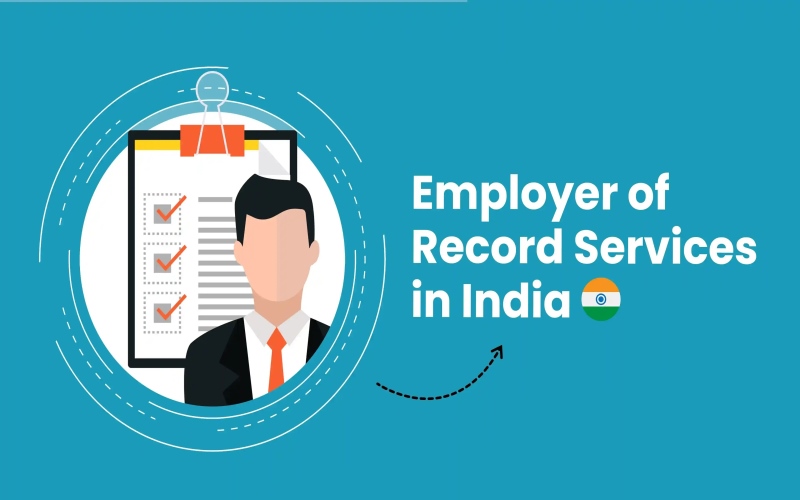Expanding into India offers businesses tremendous growth opportunities, but navigating the country’s complex labor laws, tax regulations, and employment requirements can be challenging, especially for foreign companies without a local entity. Establishing a legal entity in India often requires time, effort, and resources—an undertaking that many businesses may wish to avoid.
EOR service providers in India offer a solution that allows businesses to hire and manage employees without the need to set up a local entity. By acting as the legal employer for your employees, EOR service providers ensure full compliance with Indian laws, handling everything from employment contracts to payroll and tax filings. In this blog, we will explore how EOR service providers in India can help businesses ensure compliance, even without a formal local entity.
1. Managing Employment Contracts in Line with Indian Laws
One of the first compliance-related challenges businesses face when hiring in India is ensuring that employment contracts meet local legal requirements. Indian labor laws are comprehensive and cover everything from wages and benefits to working hours and termination conditions. Without a local entity, foreign companies may struggle to draft contracts that are compliant with these regulations.
EOR service providers help by:
- Drafting compliant contracts: The EOR ensures that all employee contracts comply with Indian labor laws, including mandatory provisions related to wages, benefits, working hours, and dispute resolution.
- Local legal expertise: With a deep understanding of local labor laws, the EOR ensures that employment agreements are legally sound and enforceable.
- Flexibility in contract terms: The EOR can also help create flexible contract structures to meet the specific needs of the business and its employees, such as fixed-term contracts or part-time employment agreements.
By partnering with EOR service providers, businesses can avoid the risk of non-compliance with Indian contract laws, even without a local entity.
2. Ensuring Payroll Compliance and Statutory Deductions
Payroll compliance in India can be particularly tricky due to the country’s complex tax system and social security contributions. Indian law requires businesses to make various statutory deductions from employee salaries, including income tax (TDS), Provident Fund (PF) contributions, and Employee State Insurance (ESI). Failing to manage these deductions properly can result in penalties and legal issues.
EOR service providers ensure payroll compliance by:
- Managing payroll processing: The EOR handles the entire payroll process, ensuring that salaries are calculated accurately, including all deductions for taxes and benefits.
- Statutory deductions: The EOR ensures that all mandatory deductions, such as TDS, PF, and ESI, are withheld and remitted to the appropriate authorities on time.
- Timely tax filings: The EOR manages tax filings and reporting, ensuring that all necessary documentation is submitted to Indian tax authorities in a timely manner.
By outsourcing payroll management to an EOR service provider, businesses can avoid costly payroll errors and ensure that they remain compliant with Indian tax laws and social security requirements.
3. Handling Benefits Administration in Compliance with Indian Laws
In India, businesses are required to provide employees with various statutory benefits, including retirement savings plans, medical insurance, and paid leave. These benefits are mandated by law and must be administered correctly to ensure compliance.
EOR service providers help manage these benefits by:
- Administering Provident Fund (PF): The EOR ensures that both employer and employee contributions to the Provident Fund are made in accordance with Indian regulations.
- Gratuity and termination benefits: The EOR ensures compliance with the Gratuity Act, which mandates severance payments for employees who have served for five or more years.
- Employee State Insurance (ESI): The EOR ensures that employees are covered under India’s ESI scheme, which provides medical benefits and insurance coverage.
By working with an EOR service provider, businesses can provide statutory benefits to employees while remaining compliant with Indian labor laws, even without having to establish a local entity.
4. Ensuring Compliance with Local Taxation Laws
India’s tax system includes a wide range of regulations, including personal income tax (TDS), Goods and Services Tax (GST), and corporate taxes, all of which must be adhered to when hiring employees or conducting business in the country. Foreign companies may struggle to navigate these complex tax regulations without a local presence.
EOR service providers ensure tax compliance by:
- Managing tax registration: The EOR ensures that your business complies with Indian tax laws by handling all tax registrations, including TDS registration, and ensures that the business remains compliant with India’s Goods and Services Tax (GST) regulations if applicable.
- Handling TDS and other deductions: The EOR manages tax deductions at source (TDS), ensuring that both employer and employee tax obligations are met.
- Tax filing and reporting: The EOR ensures that all required tax filings are completed on time, reducing the risk of non-compliance and penalties.
By relying on an EOR service provider, businesses can ensure that they meet their tax obligations in India without having to establish a local entity or navigate the complexities of the Indian tax system.
5. Managing Employee Relations and Terminations in Compliance
Managing employee relations and terminations in India can be tricky due to stringent labor laws that protect workers’ rights. Businesses must adhere to specific procedures when terminating employees, including severance pay and compliance with termination notice periods. Failure to comply with these regulations can result in legal disputes and financial penalties.
EOR service providers manage employee relations and terminations by:
- Handling termination processes: The EOR ensures that all terminations are carried out in accordance with Indian labor laws, including proper notice periods and severance pay.
- Dispute resolution: The EOR manages employee disputes, ensuring that any issues are handled in a legally compliant manner, minimizing the risk of litigation.
- Exit formalities: The EOR takes care of the exit formalities, including issuing experience certificates, conducting exit interviews, and ensuring compliance with the legal requirements for employee separation.
With the help of an EOR service provider, businesses can manage employee relations and terminations without the legal risks associated with non-compliance, even without a local entity.
6. Risk Mitigation and Legal Protection
By partnering with EOR service providers, businesses mitigate several risks that are inherent in expanding into new markets. The EOR assumes the legal responsibility for employment, ensuring that businesses comply with all applicable labor laws, tax regulations, and employee benefits requirements.
Key benefits of risk mitigation include:
- Legal liability protection: The EOR acts as the legal employer, assuming the liability for employee-related claims and compliance issues.
- Protection from fines and penalties: By ensuring compliance with Indian laws, the EOR reduces the risk of fines, penalties, and reputational damage.
- Dispute management: The EOR handles disputes with employees, protecting the business from potential legal challenges.
With the EOR taking on legal responsibilities, businesses can expand into India with greater peace of mind, knowing that they are protected from legal and compliance-related risks.
Conclusion
For businesses looking to hire employees and operate in India without establishing a local entity, EOR service providers offer a comprehensive solution. By managing employment contracts, payroll, taxes, employee benefits, and compliance with Indian labor laws, EOR service providers ensure that businesses can operate risk-free and in full compliance, even without a formal presence in India.
Partnering with an EOR service provider allows businesses to focus on growth and expansion while leaving the complexities of legal compliance and workforce management to the experts.



